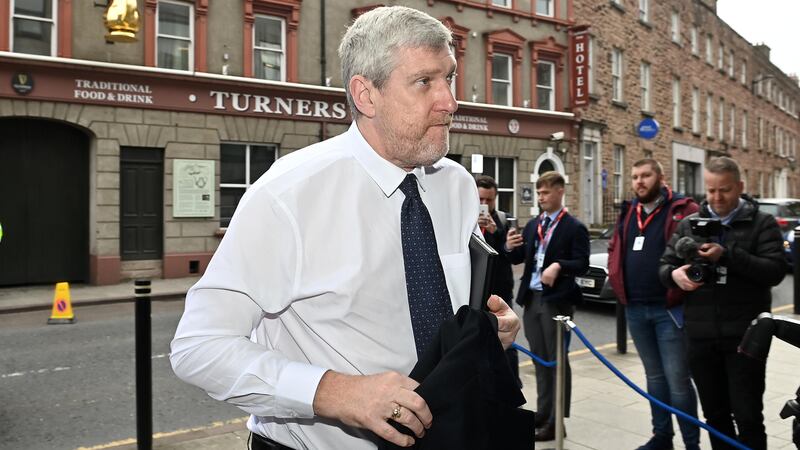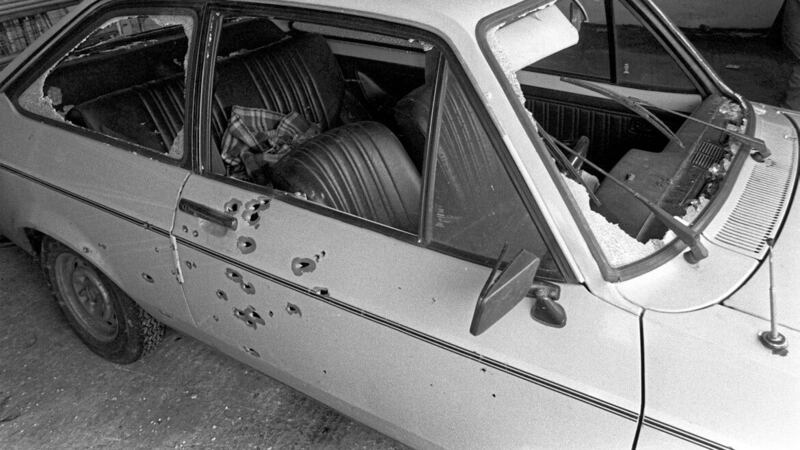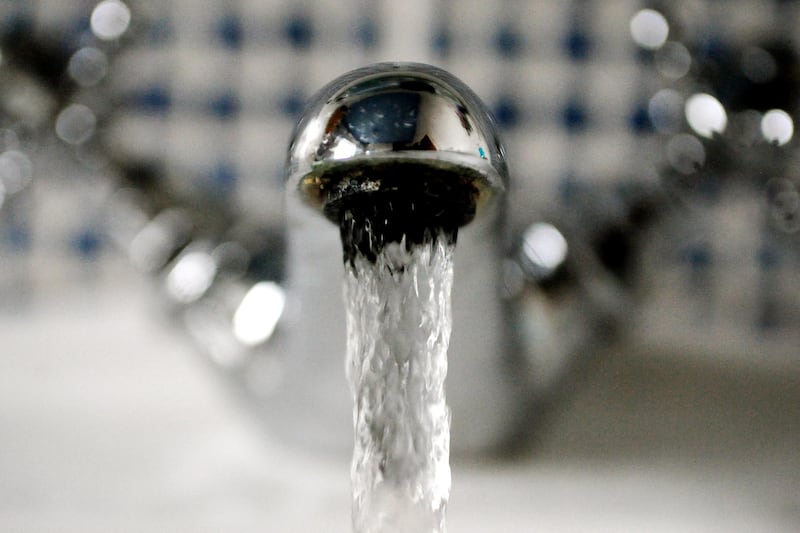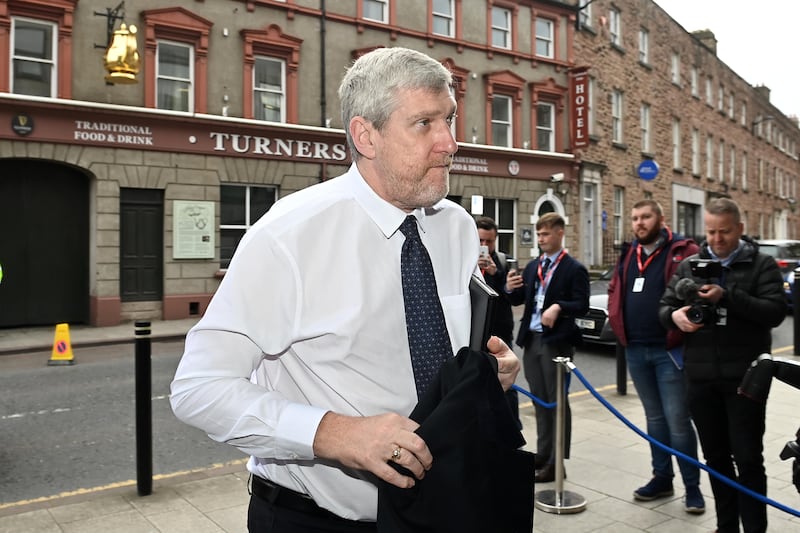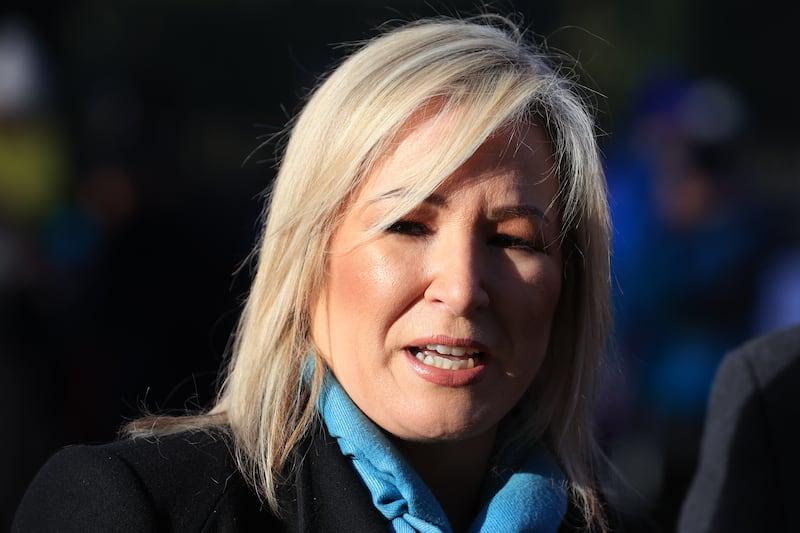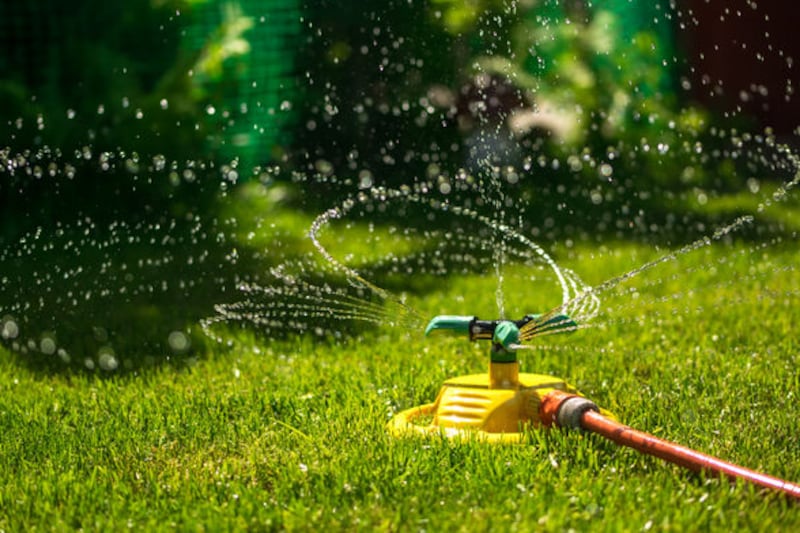Mutualisation is not the solution for issues facing Northern Ireland Water, Stormont Infrastructure Minister John O’Dowd has said.
The minister also ruled out the introduction of domestic water rates in Northern Ireland to support the government-owned body.
Water and waste water infrastructure in the region have been described as in urgent need of upgrade.
A recent Audit Office report found that a lack of capacity in water infrastructure is delaying or halting proposed housing developments.
- John O’Dowd rules out water charges to address NI Water funding deficitOpens in new window
- NI will not meet European water quality targets for lakes and rivers – reportOpens in new window
- Housing developments unable to be approved due to poor water infrastructure, critical report findsOpens in new window
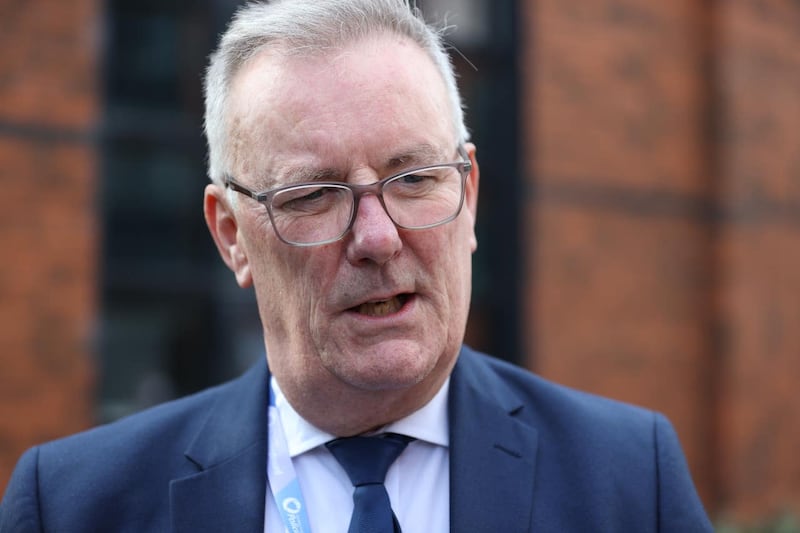
It called for a comprehensive review of the current funding arrangements for NI Water.
Ulster Unionist MLA Mike Nesbitt brought a motion to the Assembly on Monday calling for the consideration of mutualisation of NI Water.
Opening the debate, Mr Nesbitt contended a crisis faces water infrastructure, and action is required in terms of strategic investment, as well as policy reform and changes to governance.
“Our water and sewerage network is aging to say the least, over a third of pipes are more than 100 years old, the result is leakage rates which exceed 25%,” he said.
He said political instability in recent years has “not helped” in terms of strategic decisions and investment planning.
Mr Nesbitt said the situation has led to construction delays and stalled projects, harming economic growth and investment opportunities.
Responding Mr O’Dowd said since 2007 nearly £3.5 billion has been invested in water and waste water infrastructure, and that NI water has reduced its efficiency gap from 49% in 2007 to 5% today with further improvements planned.
He told MLAs the problem is not how NI Water is governed, but the level of funding available to the Executive, adding that public infrastructure has been underfunded for many years.
He said all Executive parties are currently pressing the UK government for further funding for public services.
“What happens when you underfund a public service for X amount of years?
“In this instance you end up with the challenges that NI Water has,” he said.
Mr O’Dowd said it is the position of the Executive that households will not be charged for water.
He said water and sewerage infrastructure need more investment to keep pace as well as for plans for ambitious plans for more social and affordable housing, economic growth and protecting the environment.
He said a working group in his department in 2019 assessed options such as mutualisation, and said while that first appeared to have merits, it was found to require domestic water charges and the relinquishment of Executive control over the company.
“Mutualisation leads directly to water charges, there’s no other way around it,” he said.
“The facts are, if you want to go down the mutualisation route, and I don’t and won’t, you end up charging hard-pressed workers and families directly for water charges.
“Mutualisation is not the solution that many think it is.”
